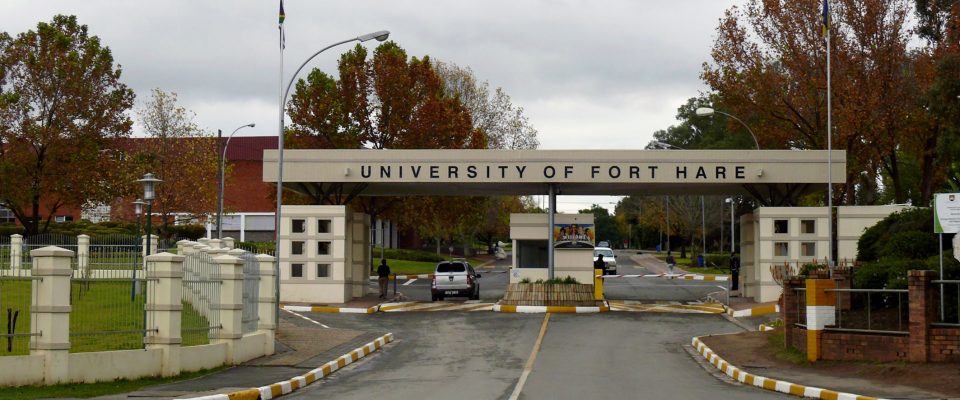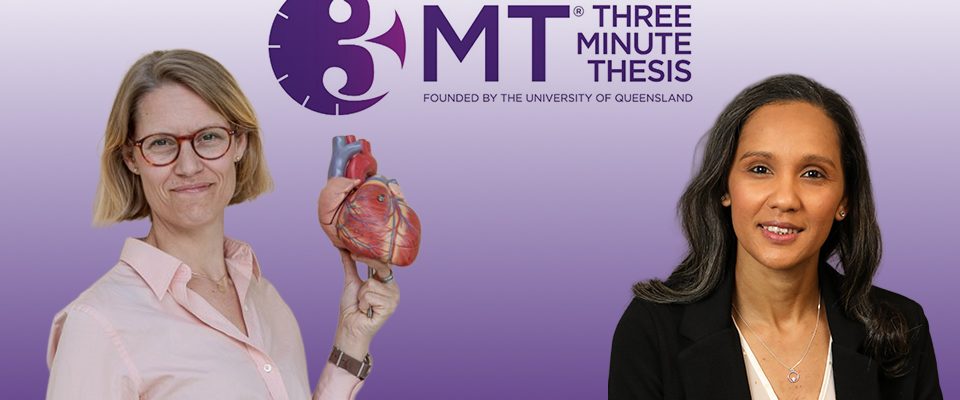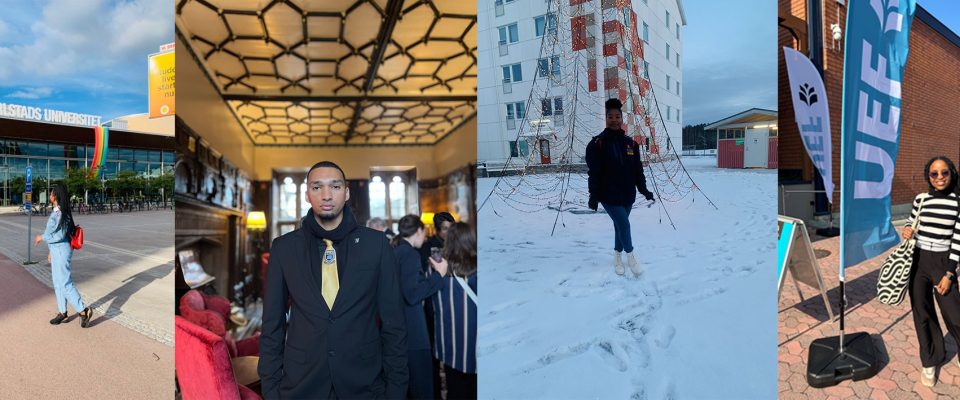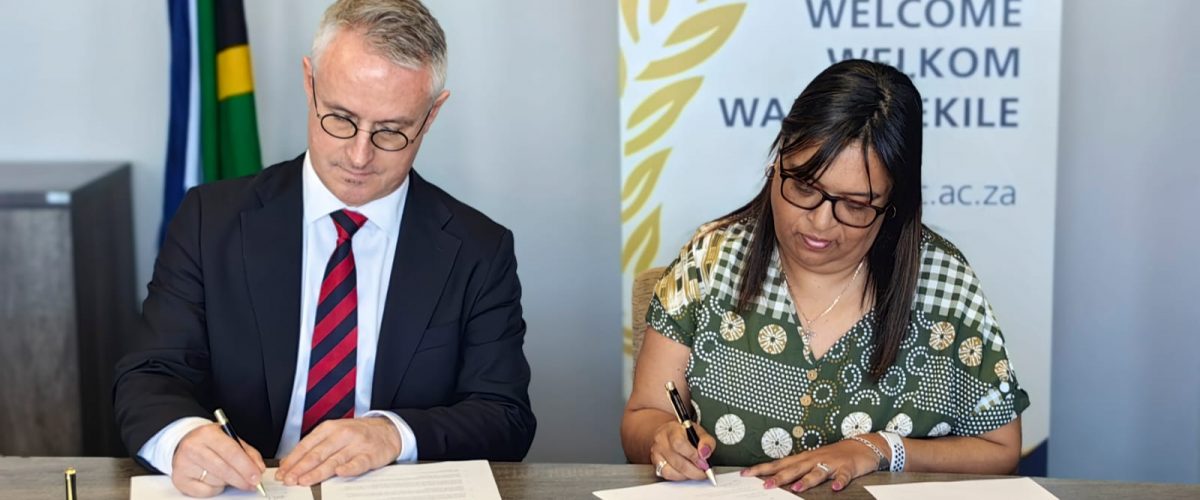
Professor José Frantz and Professor Bård Mæland
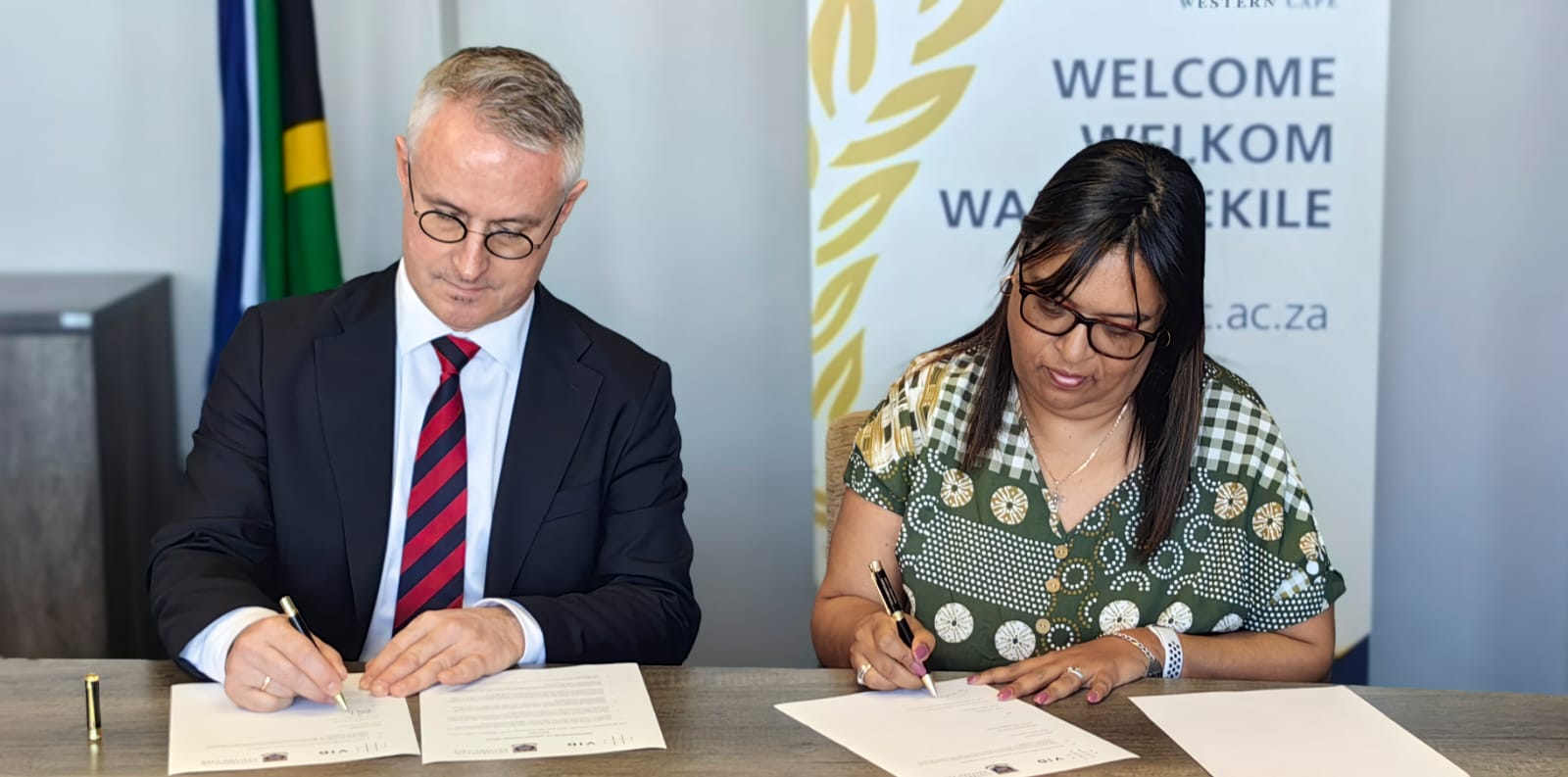
UWC and VID University of Norway Forge Transformative Partnership
Author: Myolisi Gophe – Institutional Advancement
The Memorandum of Understanding, inked by UWC’s Deputy Vice-Chancellor for Research, Professor José Frantz, and VID’s Rector and President, Professor Bård Mæland on Tuesday, charts a course for strengthening and advancing education and research with a focus on high international quality and civic relevance at both institutions.
The collaboration encompasses students, educators, visiting scholars and lecturers, educational materials, cooperation on education methodologies, credit exchange, and joint research initiatives.
This collaborative venture between UWC and VID will be integrated into the Norwegian Partnership Programme for Global Academic Cooperation (NORPART), supporting sustained academic collaboration and reciprocal student mobility between higher education institutions in Norway and selected partner countries in the Global South.
VID is renowned for its engagement in education, research, and development at an elevated international standard. This occurs through close interaction with local, regional, national, and international work life and civil society, with a distinct emphasis on addressing social inequality and the challenges faced by vulnerable populations. VID cultivates knowledgeable, reflective, and dynamic professionals through its educational programmes spanning health and social sciences, pedagogy, leadership, theology and diaconia.
A delegation from VID visited UWC this week, engaging with various stakeholders. Although VID has previously collaborated with UWC’s Department of Religion and Theology, resulting in the production of at least three books, the intention is to expand this collaboration into other academic fields.
Professor Frantz emphasised the significance of strategic partnerships for UWC. “We do not have many partnerships with private universities, and so opening up our doors and inviting them into our spaces is something that is going to be new for us. I think as we navigate this path together, and talk about how we can incorporate SDGs into our curriculum, it will be something that will be a common force that will drive us and consolidate this partnership moving forward”.
Prof Mæland echoed Prof Frantz’s sentiments and added: “I’m very glad that we have signed the agreement so that we can search out new possibilities to work together. We have a common value-based mission for our institutions and I think there is huge potential to develop what has been done already into new areas of cooperation”.



